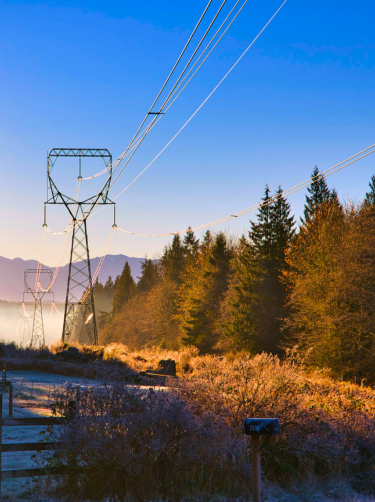Home / U.S. Climate Alliance Welcomes New Federal-State Modern Grid Deployment Initiative

WASHINGTON, D.C. – The U.S. Climate Alliance — a bipartisan coalition of governors representing approximately 60 percent of the U.S. economy and 55 percent of the U.S. population — today welcomed the Biden-Harris Administration’s launch of the Federal-State Modern Grid Deployment Initiative, through which 21 states will partner with the federal government to speed improvements to the power system. Alongside the launch, the Alliance announced the availability of resources to help participating states advance greater utilization of grid-enhancing technologies to deliver more affordable, clean, reliable, and resilient energy to Americans.
“America needs to rapidly modernize and decarbonize the grid,” said U.S. Climate Alliance Executive Director Casey Katims. “Alliance states are ready to do their part, including working with one another and the administration to accelerate deployment of innovative grid solutions that help us realize our clean energy future.”
The 21 states that joined the Initiative today as inaugural members include: Arizona, California, Colorado, Connecticut, Delaware, Hawai’i, Illinois, Kentucky, Maryland, Massachusetts, Michigan, Maine, New Jersey, New Mexico, New York, North Carolina, Oregon, Pennsylvania, Rhode Island, Washington, and Wisconsin.
⚡☀️
— U.S. Climate Alliance (@USClimate) May 28, 2024
NEW: 21 states are partnering with the federal government to speed improvements to the power system. This means more affordable, clean, reliable & resilient energy for Americans.
About the Federal-State Modern Grid Deployment Initiative ➡️ https://t.co/ZiKVhL6yyJ pic.twitter.com/fYzLYqRxnQ
“From the start, President Biden recognized that rapid upgrades to and buildout of power transmission held the potential to bolster grid reliability and cut energy costs for hardworking Americans, all while creating good-paying union jobs,” said Assistant to the President and National Climate Advisor Ali Zaidi. “This unprecedented federal-state initiative builds on this momentum and will drive grid adaptation quickly and cost-effectively, taking on the challenges and opportunities ahead.”
Under this Initiative, participating states have committed to work with one another and the federal government to support the adoption of high-performance conductors and grid-enhancing technologies, such as dynamic line ratings, to bolster the capacity of America’s electric grid to more effectively meet current and future demand. Deployment of these readily available technologies can also maximize benefits of new and existing transmission infrastructure, increase grid resilience to the growing impacts of climate change, and better protect consumers from variability in energy prices. As part of the Initiative, the Alliance will provide policy, technical, and analytical assistance to help participating members advance and accelerate this work.




This Initiative builds on a number of other federal-state collaborations between the Alliance’s members and the Biden-Harris administration, including efforts to create good-paying jobs and mobilize a diverse workforce in climate and clean energy, decarbonize buildings, and expand the procurement and use of low-carbon construction materials.
To learn more about the Federal-State Modern Grid Deployment Initiative, see the White House’s Fact Sheet and Initiative Principles.
Launched in 2017 by the governors of Washington, New York, and California to help fill the void left by the U.S. federal government’s withdrawal from the Paris Agreement, the Alliance has grown to include 24 governors from across the U.S. representing approximately 60 percent of the U.S. economy and 55 percent of the U.S. population. Governors in the Alliance have pledged to collectively reduce net greenhouse gas emissions by at least 26-28 percent by 2025, 50-52 percent by 2030, and 61-66 percent by 2035, all below 2005 levels, and collectively achieve overall net-zero greenhouse gas emissions as soon as practicable, and no later than 2050.
The Alliance’s states and territories continue to advance innovative and impactful climate solutions to grow the economy, create jobs, and protect public health, and have a long record of action and results. In fact, the latest data shows that as of 2023, the Alliance has reduced its collective net greenhouse gas emissions by 24 percent below 2005 levels, while increasing collective GDP by 34 percent, and is on track to meet its near-term climate goal of reducing collective greenhouse gas emissions 26 percent below 2005 levels by 2025.
###